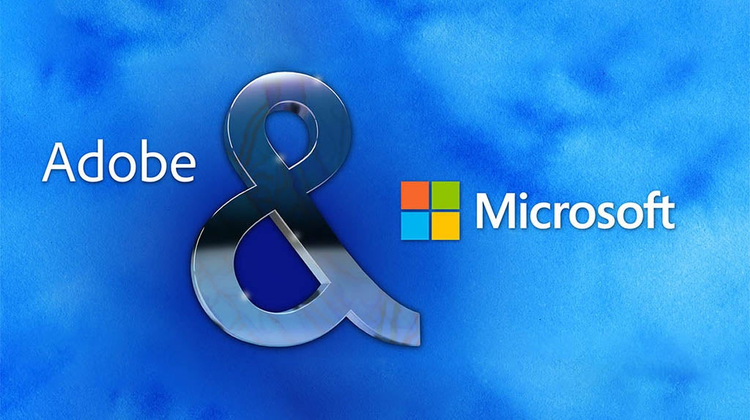Adobe Expands Strategic Partnership With Microsoft to Deliver Superior Customer Experiences

It isn’t unusual for an organization’s sales, marketing and customer service departments to operate independently. However, this becomes much more than a collaboration challenge when every team is working as a silo on a specific role. It can – and will – affect the organization’s customer engagement and its bottom line when customer-facing departments work in siloes. And ultimately it’s not just the organization that suffers, it’s also the customers and prospects, who are left with a bad brand experience.
In order to address this challenge, today at Adobe Summit EMEA, Adobe and Microsoft are announcing a strategic partnership in which Adobe’s Marketing Cloud solutions will be integrated with Microsoft’s Dynamics CRM to provide brands with customer intelligence by connecting data from sales, marketing, customer service and other front office departments of organizations. Together, Adobe and Microsoft are joining forces to create the industry’s first large-scale solution for connecting the customer experience across all customer touch points and helping companies communicate much more effectively regardless of where customers are in the lifecycle.
For example, if I’ve been meticulously researching a new family car online, then finally go to the dealership to test drive and ultimately buy a new car, I don’t want to receive a promotional email the next day about the car that I just purchased. To me, this is a clear indication that teams and systems within the car company are not speaking to each other.
Integrating Microsoft Dynamics CRM and it’s best-in-class solution with over 40,000 customers, with behavioral data through Adobe Analytics (formerly Omniture Sitecatalyst) and Adobe Marketing Cloud, the leader in marketing cloud solutions, will enable brands to offer experiences that take all customer engagements into account – from reach and acquisition, to retention and loyalty. Brands will benefit from increased productivity and eliminate common frustrations that result when interactions are siloed.
Specific functionality includes the ability to better:
- Integrate Services: Align sales and marketing activities by tightly integrating audiences and their behaviors, which can help guide sales or service calls, identify sales opportunities or inform lead scoring.
- Provide Value: Find high-value audience segments and provide them with real-time offers on the web site or enable targeted display ads.
- Deliver Content: Combine web behavior data with order history, return history, loyalty status and call center history to not only identify where in the sales lifecycle stage a customer is in, but then also deliver the right content at the right time, whether that content resides on a landing page, in a service follow-up email, or as an alert in a mobile app.
In addition, Adobe and Microsoft announced that several of its Adobe Marketing Cloud solution will run on Microsoft Azure moving forward including Adobe Campaign and Adobe Experience Manager.
The combination of marketing solutions from Adobe Marketing Cloud and Microsoft’s CRM Dynamics provide a unified customer experience. Gone are the days that consumers settle for a disjointed experience from brands.
Find out the latest on Adobe and Microsoft partnership.